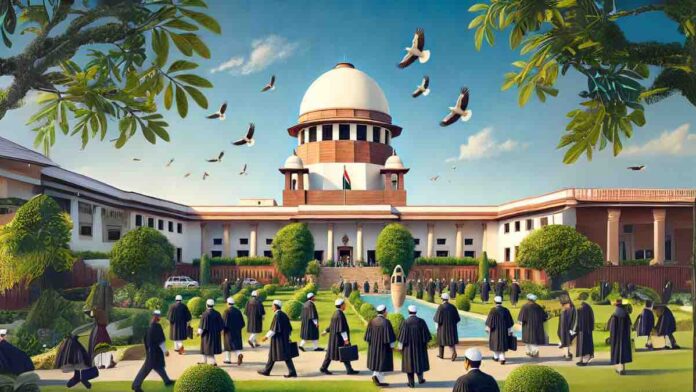In a significant judgment delivered on July 19, 2024, the Supreme Court of India partially allowed a group of appeals challenging the imposition of stamp duty on Build, Operate, and Transfer (BOT) agreements in Madhya Pradesh. The bench comprising Justice Vikram Nath and Justice Ahsanuddin Amanullah upheld the Madhya Pradesh High Court’s decision that BOT
To Read More Please Subscribe to VIP Membership for Unlimited Access to All the Articles, Download Available Copies of Judgments/Order, Acess to Central/State Bare Acts, Advertisement Free Content, Access to More than 4000 Legal Drafts( Readymade Editable Formats of Suits, Petitions, Writs, Legal Notices, Divorce Petitions, 138 Notices, Bail Applications etc.) in Hindi and English.




